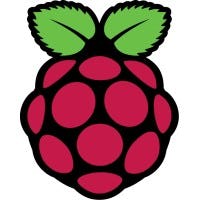Debian vs TrueNAS CORE
GetApp offers objective, independent research and verified user reviews. We may earn a referral fee when you visit a vendor through our links.
Learn more
Overview
Debian is a Linux distribution system designed to help businesses run and manage various free and open-source applications. It allows IT professionals to manually install paid applications from various online repositories, which contain multiple software packages.
Debian is a Linux distribution system designed to help businesses run and manage various free and open-source applications. It allows IT professionals...
Deployment
- Cloud-based
- On-premises
Support Options
- Email/Help Desk
- FAQs/Forum
- Knowledge Base
TrueNAS CORE is an open storage OS designed to help enterprises manage, store, and share data across the network. Built on an OpenZFS file system, the system allows businesses to facilitate block, object, file, and application storage on cloud or on-premise environments.
TrueNAS CORE is an open storage OS designed to help enterprises manage, store, and share data across the network. Built on an OpenZFS file system,...
Deployment
- Cloud-based
- On-premises
Support Options
- Email/Help Desk
- FAQs/Forum
- Knowledge Base
Images
Cost
Starting from
USD 0.00
- Free Version
- Free Trial
- Subscription
Starting from
Not provided by vendor
- Free Version
- Free Trial
- Subscription
Reviews
Ease of Use
4.3/5Features
4.6/5Customer Service
3.7/5Value for Money
4.9/5Ease of Use
4.4/5Features
4.7/5Customer Service
4.5/5Value for Money
4.9/5Features
Total features 7
- Activity Dashboard
- Activity Tracking
- App Management
- Backup Scheduling
- Backup and Recovery
- Cloud Backup
- Compression
- Data Recovery
- Data Replication
- Data Storage Management
- Desktop Interface
- Disaster Recovery
- File Management
- Kernels
- Local Server Options
- Memory Management
- Remote Access/Control
- Remote Server Options
- Reporting & Statistics
- System Updates
- Two-Factor Authentication
- User Interface
Total features 15
- Activity Dashboard
- Activity Tracking
- App Management
- Backup Scheduling
- Backup and Recovery
- Cloud Backup
- Compression
- Data Recovery
- Data Replication
- Data Storage Management
- Desktop Interface
- Disaster Recovery
- File Management
- Kernels
- Local Server Options
- Memory Management
- Remote Access/Control
- Remote Server Options
- Reporting & Statistics
- System Updates
- Two-Factor Authentication
- User Interface







